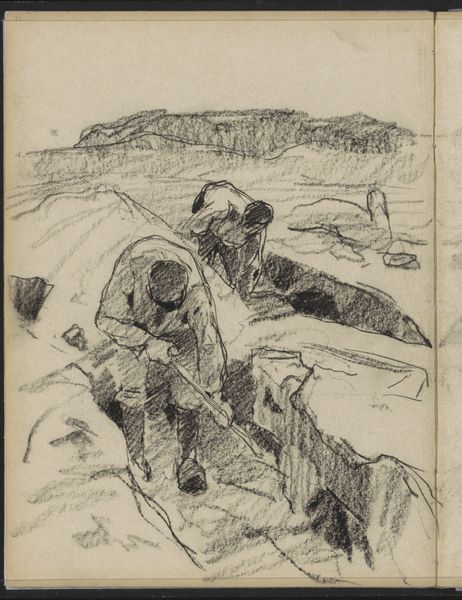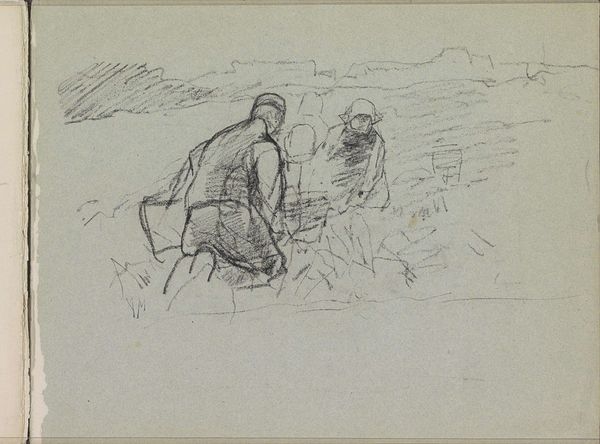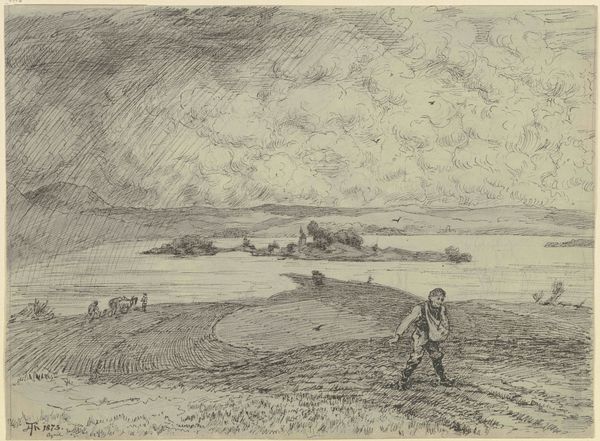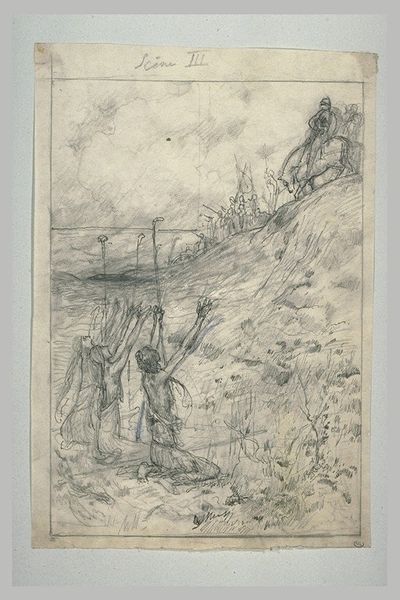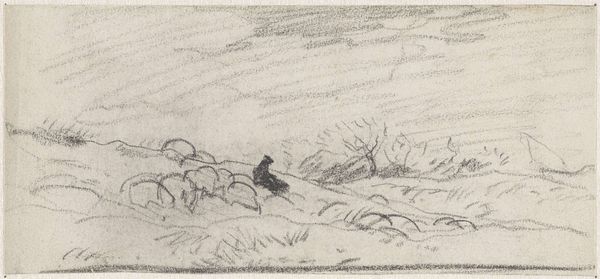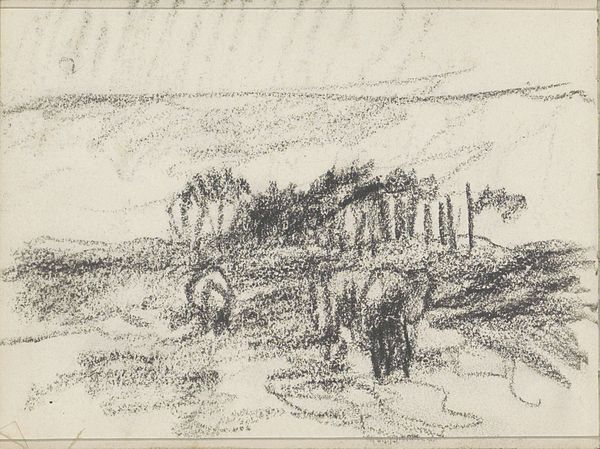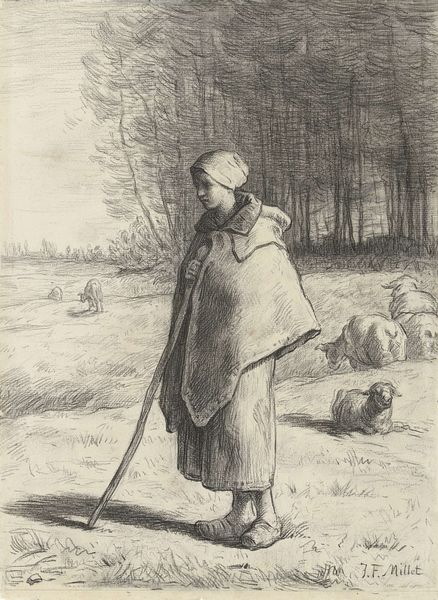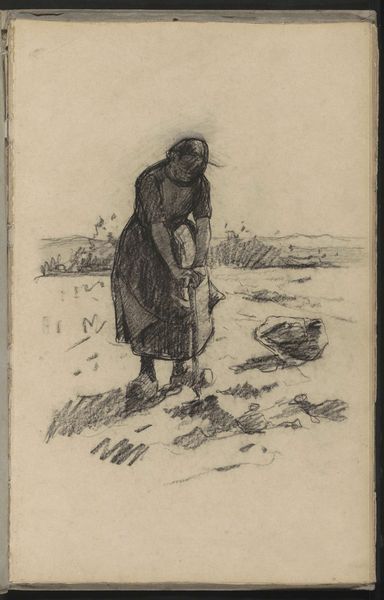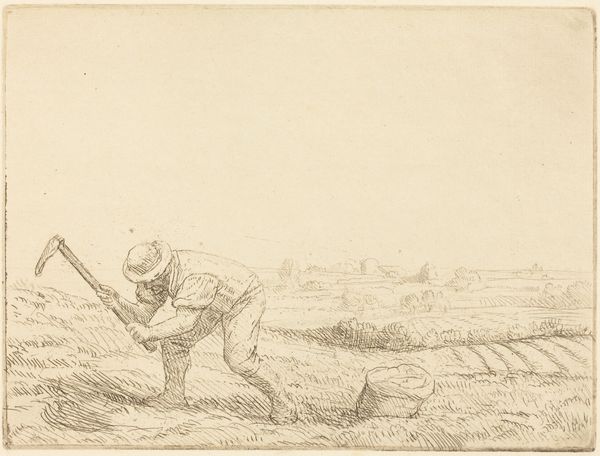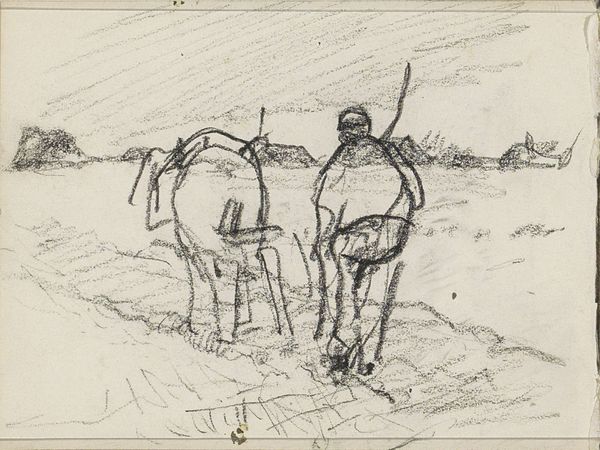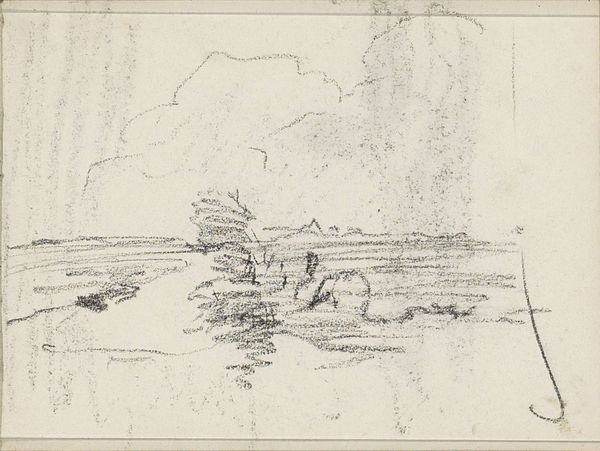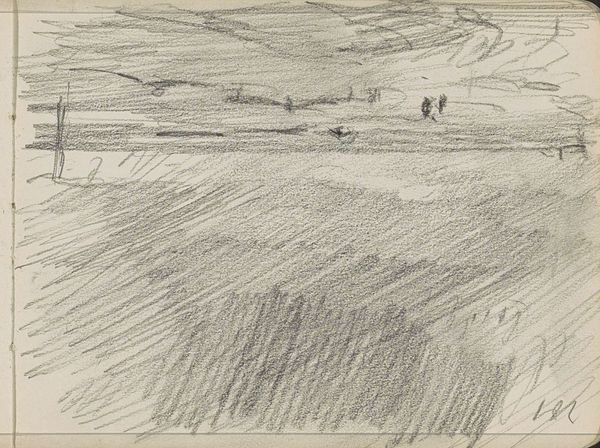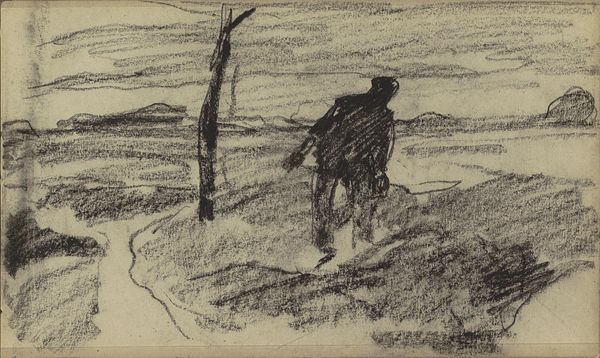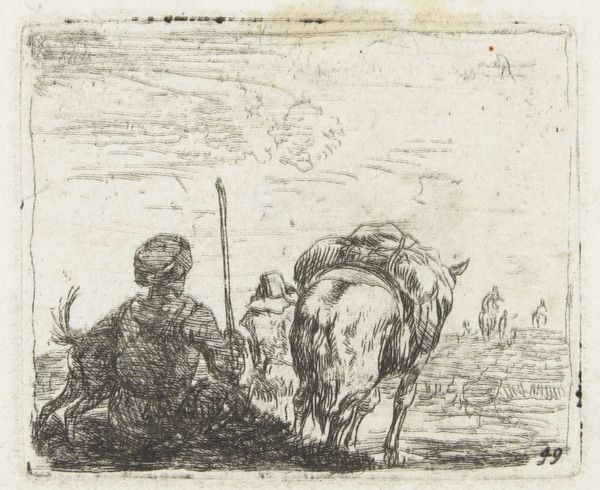
The Shepherdess fourth quarter 19th century or first quarter 20th century
0:00
0:00
drawing, pencil
#
drawing
#
impressionism
#
pen sketch
#
landscape
#
figuration
#
pencil
#
post-impressionism
#
realism
Copyright: Public Domain: Artvee
Théophile Alexandre Steinlen sketched "The Shepherdess" in graphite, depicting a young girl in a rural setting. It seems crucial to place this drawing within the context of late 19th and early 20th century France, during a period of rapid industrialization. Steinlen, known for his social realism, often depicted the lives of the working class. In this image, the shepherdess, a figure traditionally associated with pastoral innocence, takes on a different tone. The sketch captures a moment of quiet labor, far removed from romantic idylls, perhaps critiquing the idealized depictions of rural life prevalent in the art of the time. As historians, we examine such works through the lens of social and economic change, using census data, economic reports, and other archival material to better understand the realities of rural life and the institutional forces shaping artistic production. This helps us understand the public role of art and the politics of imagery.
Comments
No comments
Be the first to comment and join the conversation on the ultimate creative platform.
